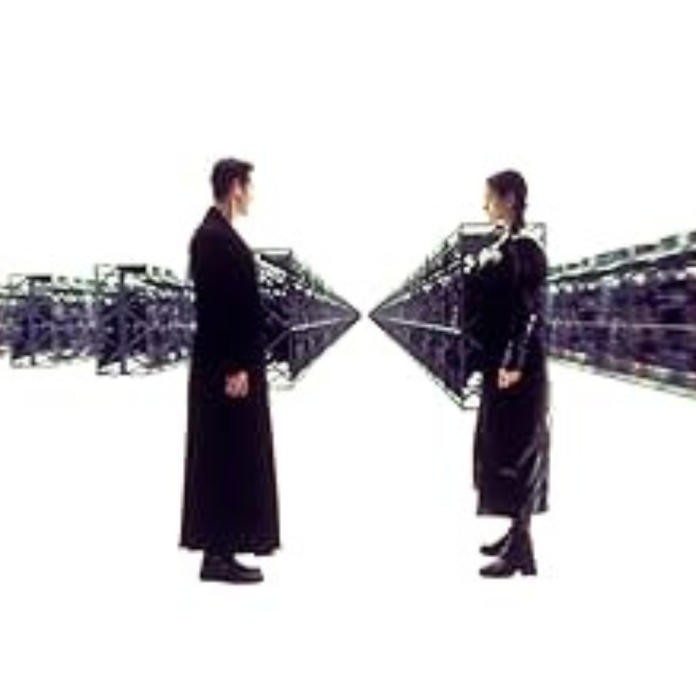It’s been 22 years since The Matrix stunned the world with a mind-bending concept: What if everything we see, feel, and believe… is fake? What if reality is just a hyper-realistic simulation, and we’re all plugged into a system we can’t escape?
To many, it still sounds like dystopian science fiction. But for leading voices in tech and theoretical physics, it’s not just a Hollywood fantasy—it’s a real, open scientific question.
Welcome to the simulation theory—a philosophical and technological puzzle that’s gaining traction among AI researchers, quantum physicists, and Silicon Valley billionaires.
You take the blue pill—you bounce off this page and scroll back to cat videos.
You take the red pill—and keep reading. Because Rizwan Virk, MIT-trained computer scientist and author of The Simulation Hypothesis, is ready to show you just how deep this digital rabbit hole goes.
The Simulation Hypothesis: Are We Living in a Computer Program?
“I think it’s more likely than not that we are in some kind of simulation,” Virk says.
His theory builds on a now-famous 2003 academic paper by Oxford philosopher Nick Bostrom, titled Are You Living in a Computer Simulation?. Bostrom outlined three key possibilities:
- Advanced civilizations never reach the point of creating simulations.
- They reach that point, but choose not to simulate reality.
- They do create simulations—and we’re probably inside one of them.
As Virk puts it, “If there are billions of simulated realities and only one base reality, then statistically speaking, we’re probably in one of the simulations.”
It’s a wild idea—but it hasn’t been disproven. And with the rise of virtual reality, deepfakes, and AI-generated content, the lines between digital and physical are already starting to blur.
Information Is Reality: ‘It from Bit’ and the Universe as Code
One of Virk’s core arguments stems from physicist John Wheeler’s theory of “it from bit”—the proposal that the fabric of the universe isn’t matter or energy, but data. Every subatomic particle is a bit of information, just like in a computer.
Think about it:
- DNA is code.
- 3D printers translate digital files into physical objects.
- Quantum particles behave differently when observed.
“That doesn’t make sense in a purely physical world,” Virk explains. “But in a rendered simulation—like a video game—it’s normal. The system only loads data when you need it.”
Quantum Weirdness and the Observer Effect: Another Clue?
In quantum mechanics, the observer effect suggests that just watching a particle can change its behavior.
To Virk, this isn’t just weird physics—it’s evidence. “In video games, the world only renders when you’re looking at it. The rest is just data waiting to be displayed. Maybe that’s how our universe works too.”
He also ties in the concept of the multiverse—the theory that every choice creates a new timeline. “Nature doesn’t duplicate whole physical worlds on a whim,” he says. “But duplicating information and forking simulations? That’s easy if reality is digital.”
Who Is Running the Simulation—Aliens? Future Humans? AI?
If we’re in a simulation… who built it?
Some suggest aliens or advanced AI civilizations. But Bostrom’s idea leans toward ancestor simulations—future humans running sophisticated programs to model the past. Like us simulating ancient Rome, they might be studying climate change, pandemics, or global conflict—or simply exploring different “what-if” scenarios.
Just like we run models to predict the weather or test economic theories, our creators might be doing the same… but on a universal scale.
Does It All Still Matter? Or Is Life a Meaningless Game?
This is where the theory gets personal—and philosophical.
If life is just a simulation, does anything really matter?
“For some, it’s a license to give up,” Virk says. “But for me, it’s the opposite. I’ve chosen to play this game. I’ve accepted the quests, the challenges. And what kind of game would it be if there was no difficulty?”
In other words: even if reality is virtual, the meaning we create is still very real.
Final Thought: Simulation or Not, What Will You Choose?
Whether you’re a believer, a skeptic, or just curious—simulation theory invites you to think more deeply about existence, technology, and the nature of truth.
Elon Musk once said the odds we’re in base reality are “one in billions.” If that’s true, we might all be NPCs in a cosmic video game. Or maybe we’re players—and the next level is just beginning.
🟥 You take the red pill… and question everything.



